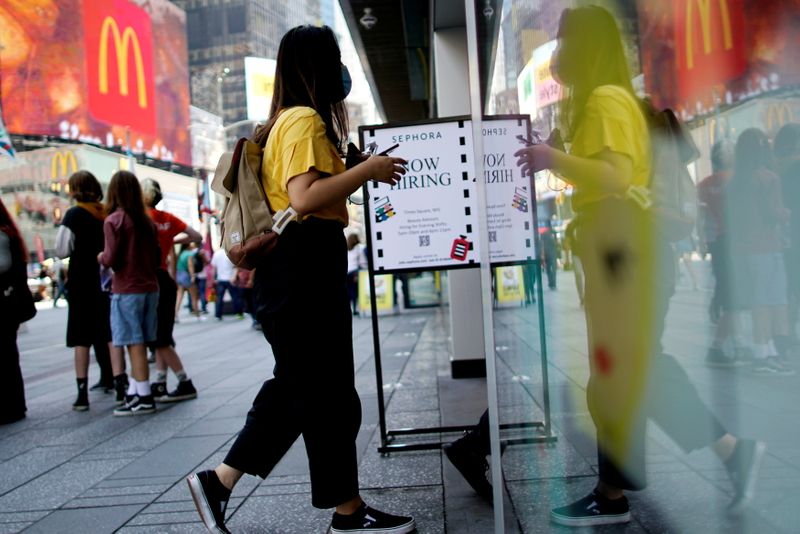US stock futures steady after Wall St soars on dovish Powell; Nvidia earnings due
Investing.com - The number of job openings in the U.S. inched down slightly in March but remained relatively range-bound, while consumer confidence slumped in April, according to two separate economic data points on Tuesday that could provide some insight into the early impact of aggressive U.S. trade policies.
A total of 7.19 million vacancies were reported last month, down from 7.48 million in February, the Job Openings and Labor Turnover Survey showed. Economists had seen the U.S. Bureau of Labor Statistics’ figures, which are a proxy for labor demand, at 7.49 million.
Total (EPA:TTEF) separations -- such as quits, layoffs, and discharges -- were also little changed at 5.1 million, in a possible sign that while the labor market has remained mostly resilient in the face of economic uncertainty, workers may not be feeling as comfortable in their prospects for finding other sources of employment.
Along with a slew of other economic data this week, the JOLTS report serves as a precursor to the all-important nonfarm payrolls report due out on Friday. The U.S. economy is expected to have added 129,000 jobs in April, versus 228,000 in March.
Separately, The Conference Board’s gauge of U.S. consumer confidence plunged again in April, sliding by 7.9 points to 86.0. The decline was broad-based across all age groups and most incomes.
A metric tracking consumers’ assessment of the short-term outlook for business and labor market conditions also decreased to 54.4, the lowest level since October 2011 and well below the threshold of 80 that usually denotes a recession ahead.
“Consumer confidence declined for a fifth consecutive month in April, falling to levels not seen since the onset of the COVID pandemic,” said Stephanie Guichard, Senior Economist at The Conference Board, in a statement.
"Notably, the share of consumers expecting fewer jobs in the next six months [...] was nearly as high as in April 2009, in the middle of the Great Recession. In addition, expectations about future income prospects turned clearly negative for the first time in five years, suggesting that concerns about the economy have now spread to consumers worrying about their own personal situations."
Still, consumers’ views of the present have held up, Guichard said.
U.S. President Donald Trump’s often erratic tariff policy has sparked concerns over a potential downturn in the U.S. economy. Many businesses have flagged worries that this could persuade households to rein in expenditures, while several companies have noted that the on-and-off nature of the levies has made it difficult to craft future investment plans.
